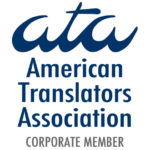No one can deny that immigration is one of the hottest topics in the U.S. today, especially as we are poised to elect a new president. Often those who seek to limit immigration and combat illegal immigration use language about “invasion” and stridently oppose the “press one for English, press two for Spanish” phenomenon as indicative of a trend in pandering to a population who many feel refuses to learn English. While English currently isn’t the official language in the U.S., several states have passed legislation making it their official language. Again and again, “English Only” pops up in political rhetoric at the city, state, and federal levels. But what does “English Only” truly mean? U.S. English, one of the country’s oldest proponents of English Only or Official English actually paints a much more benign picture. From their website, we find a brief description of what they propose: Declaring English the official language means that official government business at all levels must be conducted solely in English. This includes all public documents, records, legislation and regulations, as well as hearings, official ceremonies and public meetings. To read more about the details of this movement, read their FAQ section. ProEnglish (which maintains that Official English is very different from English only) posits that opponents continue to use the term English Only to capitalize on the fact that it’s a loaded term that implies Official English supporters are anti-immigrant xenophobes. While ProEnglish purports to welcome the use of different languages in the public sphere, they also strongly state that immigrants cannot assimilate without learning English. And that they, in fact, have no right to reside in the U.S. if they do not learn English. On its face, encouraging immigrants to learn English certainly doesn’t seem like a negative thing. But they propose to remove many of the public supports for first-generation immigrants, such as: court interpreters, translation of government documents and paperwork, bilingual education, and bilingual ballots. Basically, this would take away any ability for immigrants to participate in civic life if they are in the beginning stages of learning English. James Crawford, author of Hold Your Tongue offers a scathing critique of this movement to limit use of any language other than English. The three excerpts from his book offer insight into how opponents understand this movement, whatever terminology they may use.
Our Blog
- Home
- >
- English Language
- >
- English Only or Official English?

Telephones:
United States: 1-866-597-5526
Argentina: 54-9-11-6372-6069
E-mail:
info@transpanish.biz

Sitemap
© 2024 - Transpanish

